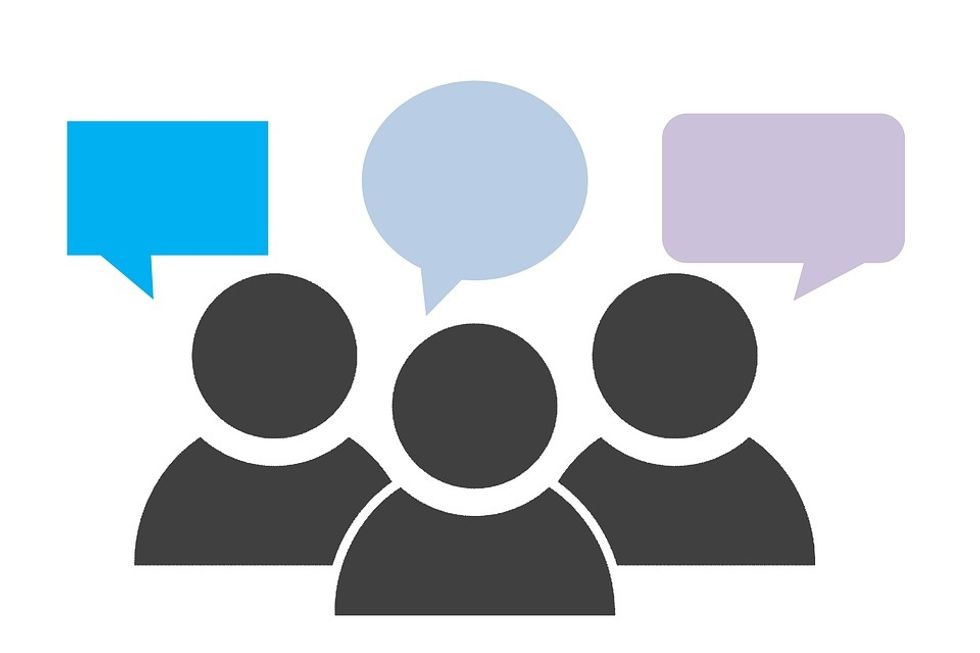From the moment we're capable of thinking we're capable of developing opinions. With these opinions, we can enter into intelligent and respectful conversations with one another that can be deep and meaningful. The key word in that last sentence is can. Just because we have the ability to have these conversations, doesn't mean we do. I would even argue that most of the time our opinions have the opposite effect. So here's a short list that explores why our opinions are more likely to cause problems, rather than be the subject of a healthy discussion.
1. Not knowing the “why” behind your opinion
We make snap judgments about nearly everything and everyone, and this is a perfectly acceptable thing to do seeing as how it's part of our innate human nature. However, this becomes a problem when we decide to share our opinion with the world and then we can't back it up. Generally speaking, human beings tend to be very opinionated creatures, but we need to learn to bite our tongues when we don't know what we're talking about. It can cause major problems to enter a conversation, or even worse start a conversation, when we haven't done any research on or experienced the topic of said conversation. First and foremost, it'll make us look ignorant when our friends, family, or the people in the comments section of a social media post start correcting us. Additionally, when we don't have any evidence to back up our opinion, we'll start attacking the other person's character ― calling names, saying threatening things, etc.
Ultimately, if our opinion is based solely on one of those snap judgments, we should keep it to ourselves.
2. Oversimplifying
We tend to oversimplify matters, and this phenomenon is especially evident when it comes to topics of controversy. We're expected to be pro-life or pro-choice, Democratic or Republican, for gun control or against it, but there's rarely ever only two choices. What about people who are pro-life or pro-choice depending on the situation surrounding the girl and her unborn child? Or the people who have ideas and values in common with both Democrats and Republicans? Or the people who think only certain guns need to be further restrained or outlawed? These are complicated issues and we can't oversimplify them by expecting people to be for this and against that ― it completely ignores their complexity.
3. Lack of fact-checking + increase in fake news
Fake news has always been a problem, especially when it comes to political campaigns; however it's an issue that's gained popularity ever since the internet and social media came to be and fake news could be spread more easily. Fake news spreads like wildfire online, especially when there are people who purposely share it because they want to watch the world burn, but we have a chance to combat it if we do a quick fact check before sharing anything we don't know the validity of. When we continue to not read the whole story but share a link based on the headline or post things that simply aren't true, we can't ever hope to get ahead of the problem. The ironic thing is, with more fake news there's also more websites and apps with the sole purpose of checking the validity of trending information, we're just in too much of a hurry to use them.
4. Confirmation bias
Confirmation bias, simply put, is our tendency to interpret new information/evidence as supporting our pre-existing opinions, whether it actually does or not. There's also similar theories and biases that say we tend to blatantly ignore counter-evidence, even when it's staring us in the face. It won't be an easy thing to do, but we need to start training ourselves to not only see this counter-evidence, but also consider what it means and maybe go so far as to adapt or change our opinions.
5. Thinking your opinion is the only one that matters
I think this one is fairly straightforward. Obviously, your opinions are what they are for a reason ― you have some evidence or experience to back them up. But everyone's life experience is different ― no two people live the exact same life. And so, no two people are ever going to agree on everything. Which means there's absolutely no chance you're going to get the majority of the population to agree with everything you think. Just because you have an opinion and you have a reason for having it, doesn't mean you're right and everyone else is wrong.
We all need to be a little more respectful of one another. We could solve a lot more problems if we had those intelligent discussions that acknowledged people's different viewpoints, rather than fighting with one another because we can't admit we just might be wrong about something.








































